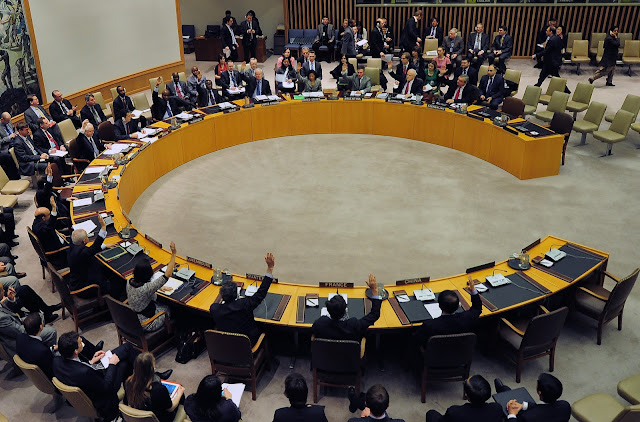Africa’s Quest for a Permanent Seat at the UN Security Council: Is the Time Now?
The longstanding debate over Africa’s representation at the United Nations Security Council (UNSC) took centre stage again during the latest UN General Assembly (UNGA) session. African leaders echoed a united call for reforms that would allow Africa a permanent seat at the UNSC. This call is rooted in a desire for greater inclusion and representation in global decision-making, particularly regarding issues affecting peace, security, and development. Yet, the road to achieving this is complex and fraught with challenges.
The crux of the African leaders' argument is that the UNSC, established in 1945, no longer reflects the geopolitical realities of the world. African nations, many of which were under colonial rule at the time of the UNSC's formation, are now politically independent but still largely excluded from the Council's decision-making processes. This exclusion has had profound consequences. Africa, a continent often grappling with conflict and poverty, finds itself unable to influence key decisions directly affecting its future.
Leaders such as Malawi's President Lazarus Chakwera and Kenya’s President William Ruto strongly articulated that this exclusion hampers not just representation but the UNSC's ability to function effectively. Africa’s marginalization in the Council compromises its legitimacy, especially in addressing African peace and security issues. Chakwera’s plea for two permanent African seats, with veto power, was a bold demand to rectify what many African leaders see as a historical injustice.
The call for reform is not new. Africa has rallied behind the "Ezulwini Consensus," a 2005 African Union agreement that demands at least two permanent seats and five non-permanent seats for African nations on the Security Council. Yet, despite this unified stance, the continent remains divided over who should occupy these seats.
In recent developments, there appears to be growing support for African inclusion. The United States, for example, has backed the idea of adding two permanent seats for Africa, though without veto power. This gesture, while significant, falls short of the full demands laid out by African leaders. Nonetheless, it reflects a shift in global attitudes toward reforming the UNSC. However, many African leaders argue that without veto power, these new seats would lack the real authority to shape outcomes, rendering the reform insufficient.
One of the most significant hurdles Africa faces in its quest for permanent representation is internal. With 54 countries, the African Union has struggled to present a united front. Patrick Agbambu, a security expert, has pointed out that internal divisions which are primarily driven by regional, linguistic, and political differences, make it difficult for Africa to agree on who should occupy these permanent seats. The competition between powerhouses like Nigeria, South Africa, and Egypt complicates the matter further. Each has a legitimate claim, based on population size, economic strength, or regional influence, but no clear consensus has emerged.
Another obstacle is the reluctance of the current permanent members of the UNSC, known as the P5 (United States, United Kingdom, China, Russia, and France), to expand the Council, as they are unwilling to reduce their influence. The P5's veto power is a significant tool, and there is little appetite to share it. Even if the expansion were agreed upon, the absence of veto rights for new members might still limit Africa’s influence on the Council.
The push for African representation on the UNSC is not merely a regional issue; it speaks to a broader struggle for fairness and inclusivity in global governance. Africa, with its 1.4 billion people, represents a significant portion of the global population. By 2050, one in four people in the world will be African, and this demographic shift underscores the need for the continent to have a more prominent voice in international affairs. Moreover, many of the world’s conflicts and peacekeeping operations are concentrated in Africa, further justifying the continent's desire to have a say in how these crises are managed.
The geopolitical implications of this reform are equally significant. In an increasingly multipolar world, Africa's inclusion on the Security Council could shift the balance of power, providing a counterweight to the traditional dominance of Western and Eastern powers. However, this potential shift is also why some nations are hesitant to fully support Africa’s demands, fearing the loss of influence and control over global decision-making processes.
Africa’s quest for a permanent seat on the UNSC represents both an opportunity and a challenge. The continent's leaders have made an irrefutable case for reform, highlighting the historical injustices of exclusion and the need for a more democratic and effective Security Council. However, internal divisions within Africa, as well as external resistance from the current permanent members, make this a difficult goal to achieve. Nevertheless, with growing global support and Africa’s increasing demographic and geopolitical significance, the push for reform is unlikely to dissipate. The world must reckon with the question: can global governance truly be fair and inclusive without Africa at the table?






Comments
Post a Comment